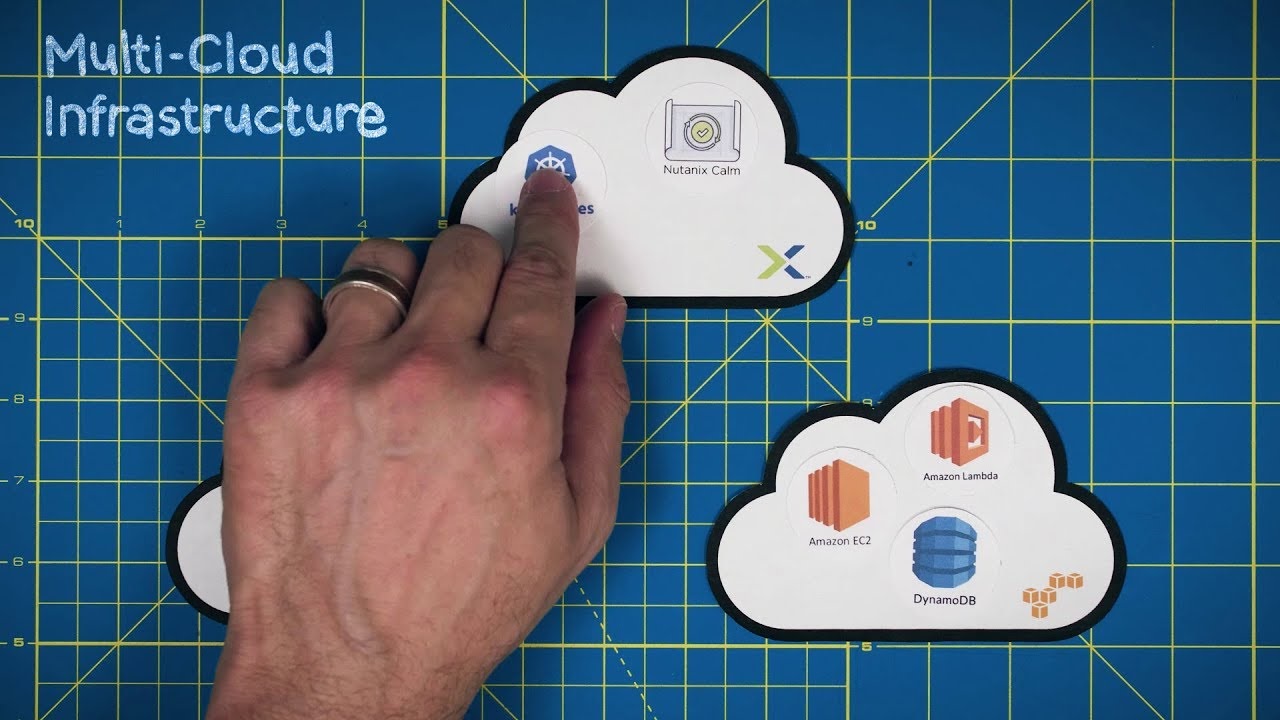Commvault sounds warning for multi-cloud “new world order”
CEO Sanjay Mirchandani draws from the "scars of being a CIO" to promote his roadmap for the company


With multi-cloud and hybrid cloud environments on the rise, businesses need to approach data management differently than in the past, Commvault's CEO Sanjay Mirchandani has claimed.
Specifically, this will involve avoiding data lock-in, addressing skill gaps and making information more portable while also, in some instances, doing more with less when it comes to implementing new technology.
Mirchandani, who only joined Commvault in February, used the company's annual Go conference as an opportunity to outline his vision for the future.
During his keynote address, he highlighted the importance of offering customers the flexibility to deliver services to their native environments, whatever that may be.
Recent research has backed this premise up, with findings showing that 85% of organisations are now using multiple clouds in their businesses.
Drawing from his time as a chief information officer (CIO) at EMC, the Commvault boss also castigated point solutions, a term used in the industry to describe tools that are deployed to solve one specific business problem, saying he wants the company to move away from this.
"With the technological shifts that are happening, you need to help your businesses truly capitalise on that opportunity," he said.
Sign up today and you will receive a free copy of our Future Focus 2025 report - the leading guidance on AI, cybersecurity and other IT challenges as per 700+ senior executives
"Give them the freedom to move data in or out, anywhere they want, on-prem or off-prem, any kind of cloud, any kind of application; traditional or modern. You need that flexibility, that choice, and that portability."
"If I could give you one piece of advice, don't get taken in by shiny point solutions that promise you the world, because they're a mirage. They capture your attention, they seduce you in some way, and then they won't get you to Nirvana. They're going to come up short."
He added that businesses need services in today's age that are truly comprehensive and process a multitude of scenarios, spanning considerations that centre on central storage to edge computing.
Moving forwards, Commvault's CEO said the company will look to address a number of key areas, from how the company approaches the cloud in a fundamental way in the future, to reducing 'data chaos' created by the tsunami of data that businesses are collecting.
Mirchandani's long-term vision for the company centres on finding a way to build platforms to service customers that work around the concept of decoupling data from applications and infrastructure.
It's a long-term aim that will involve unifying data management with data storage to work seamlessly on a single platform, largely by integrating technology from the recently-acquired Hedwig.
From a branding perspective, meanwhile, granting Metallic its own identity, and retaining Hedwig's previous one, instead of swallowing these into the wider Commvault portfolio, has been a deliberate choice.
The firm has suggested separating its branding would allow for the two products to run with a sense of independence akin to that of a start-up, with Metallic, for instance, growing from within the company.
However, there's also an awareness that the Commvault brand carries connotations from the previous era of leadership, with the company keen to alter this from a messaging perspective.
One criticism the company has faced in the past, for instance, has been that Commvault's tech was too difficult to use. Mirchandani added that due to recent changes to the platform, he considers it a "myth" that he's striving to bust.
"The one [point] I want to spend a minute on, and I want you to truly give us a chance on this one, is debunking the myth that we're hard to use," he said in his keynote.
"We're a sophisticated product that does a lot of things for our customers and over the years we've given you more and more and more technology -- but we've also taken a step back and heard your feedback."
Commvault, however, has more work to do in this area, according to solution architect with UK-based partner Softcat, Andrew Cochrane, who told Cloud Pro prospective customers are also anxious the firm's tech is too costly.
An aspect that would greatly benefit resellers would be some form of guidance as to how to handle these conversations with customers, as well as a major marketing effort to effectively eliminate the sales barrier altogether.

Keumars Afifi-Sabet is a writer and editor that specialises in public sector, cyber security, and cloud computing. He first joined ITPro as a staff writer in April 2018 and eventually became its Features Editor. Although a regular contributor to other tech sites in the past, these days you will find Keumars on LiveScience, where he runs its Technology section.

